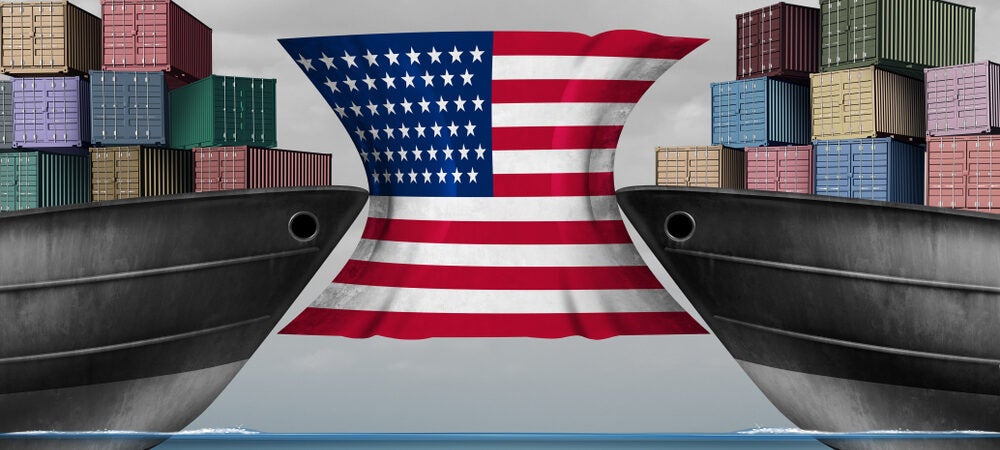Late last week, World Trade Organization (WTO) dispute settlement panels ruled against the United States on four separate cases involving the US imposition of tariffs on steel imports and duties on imports of aluminum. China, Turkey, Norway and Switzerland brought the cases against the United States. Two other cases—brought by Russia and India—are pending, and three—with Mexico, Canada and the European Union—have been settled.
These cases are unique because the United States did not apply these duties to offset predatory pricing (dumping), or to countervail foreign subsidies that place US producers at a disadvantage. Instead, Trump administration US Trade Representative Bob Lighthizer—a former steel industry lawyer—dusted off a Kennedy administration statute and claimed that these imports constituted a threat to the national security of the United States.
As such, Lighthizer contended, the United States would find legal cover for its actions under a broad WTO exemption: Article XXI of the General Agreement on Tariffs and Trade, the National Security Exemption.
The WTO dispute settlement reports have not yet been made public so detailed analysis is not yet possible. But here are three early reflections of what these cases may mean.
- The WTO should not take up cases involving national security. For decades this was the unwritten agreement among the Members. The thinking was, and still is, that invoking the national security defense places the organization in an impossible situation. The United States—and Russia—have always maintained that only sovereign states can determine what is in their national security interest. They claim that the WTO and the General Agreement on Tariff and Trade (GATT) before it, have no jurisdiction in this matter. On the other hand, lawyers argue, if citing Article XXI gives a WTO Member carte blanche, it opens a hole in the WTO rules through which a clever trade delegate could steer an aircraft carrier. In the GATT days, for instance, Sweden claimed a national security exemption for restricting boots imports. Dispute settlement lawyers, who are indeed trade experts and not national security advisors, have long been loath to see such cases. They knew the outcome would show that either the WTO rulebook is an empty shell, or that legal eagles in a 100-year-old palace on the shores of Lake Geneva are haughty enough to tell a super power what is in its national security interests.
- The United States deserved to lose the case. The application of Section 232 of the Trade Expansion Act of 1962 was a cynical effort to protect a domestic constituency which did not warrant and was not legally entitled to import protection, at least not under WTO rules. If the industry wanted to buy time, the Trump administration could have applied anti-dumping or countervailing duties on the imports. The US may well have lost these cases, as it has lost many others before it, but the legal machinations involved in a WTO dispute case would have bought the industry two or three years of breathing space. It would not, however, have been a permanent fix. Lighthizer knew this and so he reached for the national security option. Switzerland a threat to US national security? NATO partners Norway and Turkey a threat to national security? Ridiculous.
- This result will make reforming the WTO’s dispute settlement system even more difficult. It is a system badly in need of reform. Currently, it is hobbling on one leg since the Trump administration dismantled the second-tier appeal unit known as the Appellate Body. The administration skillfully—and accurately—pointed out that the Appellate Body had overreached its mandate in several ways, including by setting legal precedence it had no right to establish but felt compelled to follow. The wider membership now buys the argument that the Appellate Body was broken, but when they ask Washington how it should be fixed they are greeted with stony silence. The status quo suits the United States well. Under WTO rules all parties are guaranteed an appeal, but without a functioning Appellate Body any case that is appealed disappears into a legal black hole. Should a case go against it, Washington can simply appeal into the void. This national security question can be added to a growing number of trade-related industrial policy or environmental measures implemented in the United States, the European Union, and with other countries that might be subject to legal challenges in Geneva. When you consider the political implications of allowing such policies to be overturned by the WTO, it is immediately apparent that the revival of a dispute system, operating under rules that are nearly 30 years old, is not in the cards any time soon.
Keith Rockwell is a Global Fellow at the Wilson Center and is the retired Director of the Information and External Relations Division and Chief Spokesman at the World Trade Organization.
To read the full piece, please click here.

